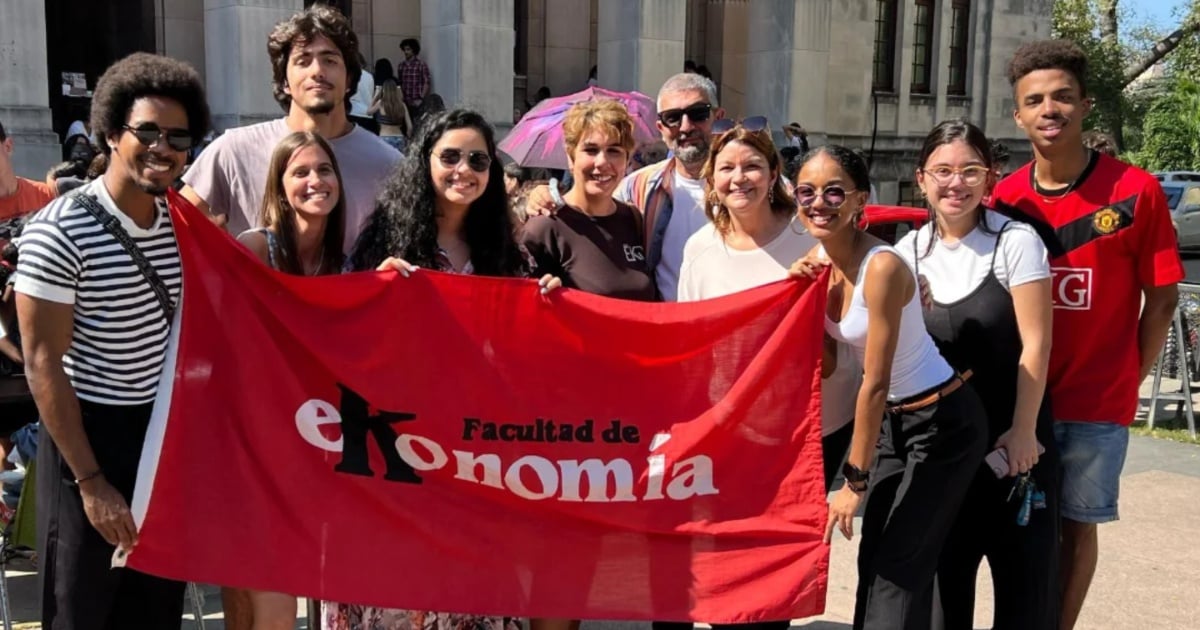The University of Havana's Economics Faculty Student Federation (FEU) has formally criticized the recent fee hikes announced by Cuba's Telecommunications Company (ETECSA). On Sunday, the FEU expressed their concerns through a statement on Instagram, highlighting how these increased rates restrict access to national recharges and indirectly hinder essential digital services like Internet access and digital tools, which are "crucial" for the academic progress of many Cuban students.
In their statement, the students argued that these measures contradict the Cuban government's frequently stated goals of informatization and digitalization. Instead of aligning with these goals, the new rates obstruct educational progress and run counter to the post-pandemic policies aimed at easing restrictions on in-person attendance.
Impact on Educational Access
The FEU warned that limitations on data consumption and difficulties in monetary recharges directly affect students' ability to access educational platforms, study materials, and research tools. They pointed out the contradiction of promoting technological modernization as a cornerstone of economic development while implementing policies that limit technology access and information.
In response to the global pandemic, the University of Havana developed the "Virtual Learning Environment" (EVEA) platform, which was free of charge. Although it has seen improvements thanks to investments, it remains insufficient to meet the needs of students and faculty. The new measures exacerbate this issue, forcing the academic community to revert to outdated methods and ignoring the necessity of adapting to a digitally driven world.
Economic and Social Implications
The FEU's protest also addressed the broader social and economic implications of ETECSA's policy changes. They argued that the increase in service costs does not align with the purchasing power of the Cuban populace, as the cost of a 3GB data package now represents a significant portion of the average salary and pension. This economic strain could lead to reduced demand for such services.
Moreover, the statement criticized ETECSA's approach of correcting service price discrepancies between the Cuban Peso (CUP) and the US Dollar (USD). The disproportionate increase of CUP prices compared to a slight reduction in USD prices might not enhance foreign currency inflow but will likely diminish domestic demand due to high costs relative to essential goods and services.
Call for Policy Review
The FEU urged a review of these measures and the implementation of solutions that prioritize equitable Internet access, recognizing it as a fundamental right in the 21st century. They expressed readiness to collaborate in finding alternatives that balance business sustainability with societal needs, particularly those of the academic community.
The protest concluded with a call for transparency and protection of citizens' rights, particularly those of the most vulnerable, by urging state administration agencies to take action. The FEU remains hopeful that ETECSA will reconsider its stance, reaffirming its commitment to the nation's educational and technological advancement.
Understanding ETECSA's New Policies: Key Questions
Why did the FEU of the University of Havana protest against ETECSA?
The FEU protested against ETECSA's new tariff policies as they restrict access to necessary digital services crucial for academic progress, contradicting the Cuban government's digitalization goals.
How do ETECSA's new tariffs impact Cuban students?
The new tariffs limit students' ability to access educational platforms, study materials, and research tools, directly impacting their educational opportunities and progress.
What economic concerns did the FEU raise about the tariff changes?
The FEU highlighted that the increased cost of services in CUP is not aligned with the average purchasing power in Cuba, potentially reducing service demand and contributing to inflation.
